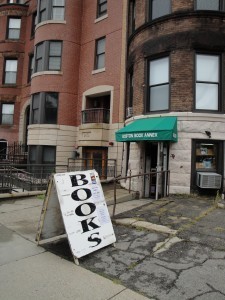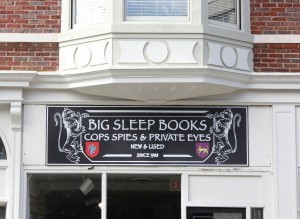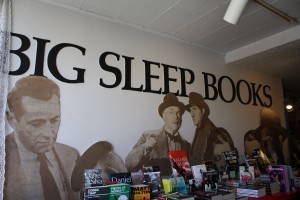Midge Raymond's Blog, page 42
December 5, 2011
Weekly Writing: Winter
With each new season, everything shifts: We get out our happy lamps or our flip-flops; we plan our vacations or head back to school. Each season has significance, though we don't often stop to ponder it.
Today, write about winter — what you feel about it, how much you love/hate it, how it temporarily alters your life. (Fiction writers: Feel free to apply this one to any one of your characters.)

November 30, 2011
Book Promo 101: Book reviews
When Forgetting English was first published by Eastern Washington University Press in 2009, I learned — after the fact and much to my dismay — that it had never been sent out for reviews. It wasn't long before I also learned that half of the press's staff had been laid off and that the press would close within the year, which answered the question of why — but I still had to deal with the fact that I had a short story collection to promote without a single review.
And that was a little depressing.
Authors (rightly) expect their publishers to send out review copies (if there's ever any doubt, they should ask), but of course this doesn't guarantee that their books will actually be reviewed. With some 200,000 books being published in the U.S. annually, it's a challenge, particularly for new and emerging authors, to get reviewed by the major media outlets that can get your book the attention you want and need. So what can an author do to help create some publication buzz when the reviews aren't coming in?
Among the best advice I got from authors when Forgetting English was published was to use my author copies for promotion purposes. I'd been planning to give them all away — what could be more fun than to shower friends and family with free books? — but then I realized that my fellow authors had very good reasons behind their advice.
First, if anyone's going to buy your book with great joy and pride, it'll be your friends and family — so let them. It doesn't cost them all that much, and it'll support either their indie bookstores or your Amazon ranking, and that's nice, too. Second, you'll need to send complimentary copies to those who were instrumental in the writing or publishing process, from those who helped you with research to those who offered blurbs; anyone who donated time and energy to you without asking anything in return certainly deserves a signed copy of your book. And, finally, whatever copies you have left are best used to help promote it — given today's challenges, from the economy to dwindling attention spans, we authors need all the help we can get. And I don't mean this in a pessimistic way, just a realistic one: As anyone who's published a book will tell you, promotion makes writing look like the easy part.
Whether you've gotten those PW and NYT reviews or not, you'll still want to take advantage of the myriad options for generating buzz and/or keeping it going. So here are a few tips for getting reviews and making the most of them…
- About six months before your book comes out, research book review blogs to see which ones might be a good fit for your book as well as receptive to reviewing it. You'll want to approach bloggers with a good number of followers (these are your potential readers) as well as comments (which shows that the reviews are being read and responded to). Also be sure they read and review in your genre and that the reviews are of the quality and sensibility you hope for in a review. It's best to query first so that you don't send a copy that may end up in recycling; if a blogger is interested, he or she will get back to you. Because publishers often offer advance copies to book bloggers as well as more traditional media, check your list against the review list of your publisher so that you don't send duplicates.
- If for any reason your book doesn't get sent out for reviews, don't give up: Send copies out yourself. You won't get anywhere with Publishers Weekly, which requires copies months in advance, but your local newspaper will probably pay attention, and may even do a feature article along with a review. Alumni magazines and newsletters are also a great resource.
- Think outside the box: Don't limit yourself to traditional book review sections of publications but also look at other possibilities, from travel columns to cooking editions. Target radio stations, university publications, community newsletters — any venue or publication that might offer a good audience for your book and/or topic.
- If you are fortunate enough to get good press, add reviews to your web site, your Facebook page, etc. — get the good news out there. At the same time, avoid becoming tediously self-promotional; if you get several reviews at once, you might space them out a bit. I often link to reviews on Facebook by expressing gratitude toward the reviewer or publication, which always seems a bit softer than shamelessly showing off my book (even if that really is the point). It's a tough job, but someone's got to do it.
- Remember that every day is book promotion day: Don't give up on getting reviews six months past your publication date. When Forgetting English was reissued by Press 53, I reached out to new bloggers and even did another book tour — all of which led to many new readers, even though the book by then was two years old. Always keep an eye out for publications that might be a good fit, or for a local news story that you may be able to contribute to. There's never any reason to stop promoting your book; there will always be someone out there for whom it's brand-new.
- If readers tell you how much they love your book, ask for an Amazon/Goodreads/LibraryThing/Barnes & Noble reader review. Having good reviews on these sites will get the attention of online shoppers, and though it feels awkward to ask, you'll get over it once you see a few nice reviews up there. You don't have to beg or plead; simply let people know how much a nice review will help get the word out about your book and how much you'd appreciate it.
- And, finally, if you do happen to get a bad review, try to remember how subjective the process of reviewing is. This is especially true with book blogs, many of which are very informal — yet even professional book reviewers are human beings with personal tastes that may not align with what you've written. Recognize that no writer or book can satisfy every reader, and, because the book is out there and there's nothing you can do to change it anyway, do your best to ignore anything negative. And don't attempt to respond to bad reviews, even if you feel the reviewer was sloppy or missed the whole point of the book; this approach never goes anywhere good. Just let it go.
And keep in mind that, in the end, while reviews are wonderful and helpful, they won't necessarily make or break your book. Many bestsellers have been made by word of mouth alone, so always remember what you can do for your book, focusing on what is in your power do accomplish rather than what's not.

November 28, 2011
Weekly Writing: Happiness
Write about the last time you (or one of your characters) felt genuinely happy.
Then write about what happened the day before.


November 21, 2011
Weekly Writing: Decisions
We all know those people who are so confident, so sure of themselves, that decisions come quickly and easily. (Aren't they annoying?) But for most of us, as this article points out, making decisions is challenging and can even be exhausting.
Write about a decision that you — or your character — needs to make. Write about making this decision, in two versions: one in which you weigh the pros and cons and make a thoughtful, informed decision; then write another in which you just go for it. Don't forget to write about the consequences for each scenario!


November 18, 2011
Bookstore Geek: Boston Book Annex
One of my favorite bookstores in Boston has always been the Boston Book Annex, where you'll find an amazing selection of used books, with especially impressive collections in political history, literature, and art. The store has also always had some of the cutest bookstore cats ever.
I didn't see the cats during my last visit, but I did some great browsing. The store carries more than 100,000 books and continues to buy used books. It's everything a good used bookstore should be: a little dusty, with curious cats, creaky wood floors, and overstuffed shelves.
Plan to spend at least an hour, bring your cash or credit, and be prepared to carry home a new stack of books.

November 14, 2011
Weekly Writing: Think inside the box
A few years ago, my mom gave me a box of stuff that had been in her house for decades — stuff I hadn't even realized she had. I opened it up and discovered such things as my baby book, notes to my parents congratulating them on their first child, baby portraits, and other things that happened during my early years, of which I have absolutely no memory whatsoever. I really enjoyed this glimpse into my far, far past.
Today's writing prompt is to take out your own box of baby stuff, if you have one. If you don't, imagine it: What's inside? What parts of your life might be contained there that you can't possibly remember? Whether you're writing from your own POV or that of one of your characters, take this exercise as far as you can go, from the unborn person to the person of today.

November 9, 2011
Bookstore Geek: Pudd'nhead Books
St. Louis's Pudd'nhead Books is thriving in its new Webster Groves location, just down the street from its former home.
The new space is warm and inviting, with wide aisles for optimal browsing and comfy chairs that invite you to sit down and stay awhile.
The store also offers a wonderful series of events, from author readings (Jonathan Franzen recently visited) to Literary Speed Dating to the Pudd'nhead Book Club and the YA for Grown Ups Book Club.

Pudd'nhead is also part of the St. Louis Independent Bookstore Alliance, a brilliant idea conceived to keep indie bookstores helping one another stay strong. With Webster University nearby, it's a great neighborhood in which to spend an afternoon — and be sure to leave plenty of time for Pudd'nhead!

November 7, 2011
Weekly Writing: Confinement
I've had confinement on my mind lately, ever since my cat had surgery 12 days ago. He's been confined to a small space and has to wear one of those awful cones around his head (so sad), and the whole thing has made me think a lot about being trapped, confined, and restricted against one's will (I've tried to explain to him why it's necessary, but somehow it hasn't registered). So here are this week's writing prompts, inspired by the cat (and, in truly exciting news, his cone comes off today):
1. Write about a time you had to do something you didn't want to do — whether it was something that was "for your own good," like finishing your peas, or something necessary but unpleasant, like a flu shot or taking your wild, beastly cat to the vet.
2. Write about a time you were physically confined (stuck in an airport, trapped in a stalled subway car, imprisoned in a jail cell). Include all the details you can, including a little backstory for context.
3. Write about a time you felt emotionally trapped (in a relationship, a job, etc.). Again, include all the details and backstory you can.
Fiction writers: If you don't feel like writing about yourself, apply these exercises to your characters.


October 31, 2011
Weekly Writing: Playing dress-up
On Halloween, it only seems fitting to write about costumes. It's the one day of the year (for most of us, anyway) on which we get to dress up in outfits we wouldn't normally wear and be someone — or something — else for a while. So let's run with this in our writing today, too.
Write about a costume, personality, job, etc., that you (or your main character) has always wanted to try on. Maybe you're not athletic, for example, but have nevertheless dreamed of being an Olympic swimmer; maybe you're not musical but have always longed to sing. Write about a day of living this life — and see where it takes you.
Happy Halloween!

October 28, 2011
Bookstore Geek: Big Sleep Books
I came across this St. Louis treasure in the city's Central West End one recent autumn afternoon.
Big Sleep Books specializes in mysteries and detective books, new and used, and while it's small, it's brimming with great books and a staff that knows its stuff. Big Sleep also offers a few rare titles and signed first editions, so it's a great place for collectors as well as mystery lovers.
Though it's a cozy little place, Big Sleep does host readings and signings and is a big supporter of local authors, and while visiting the store is the best way to hear about new books and great authors in the genre, the store's website also links to its favorites.










